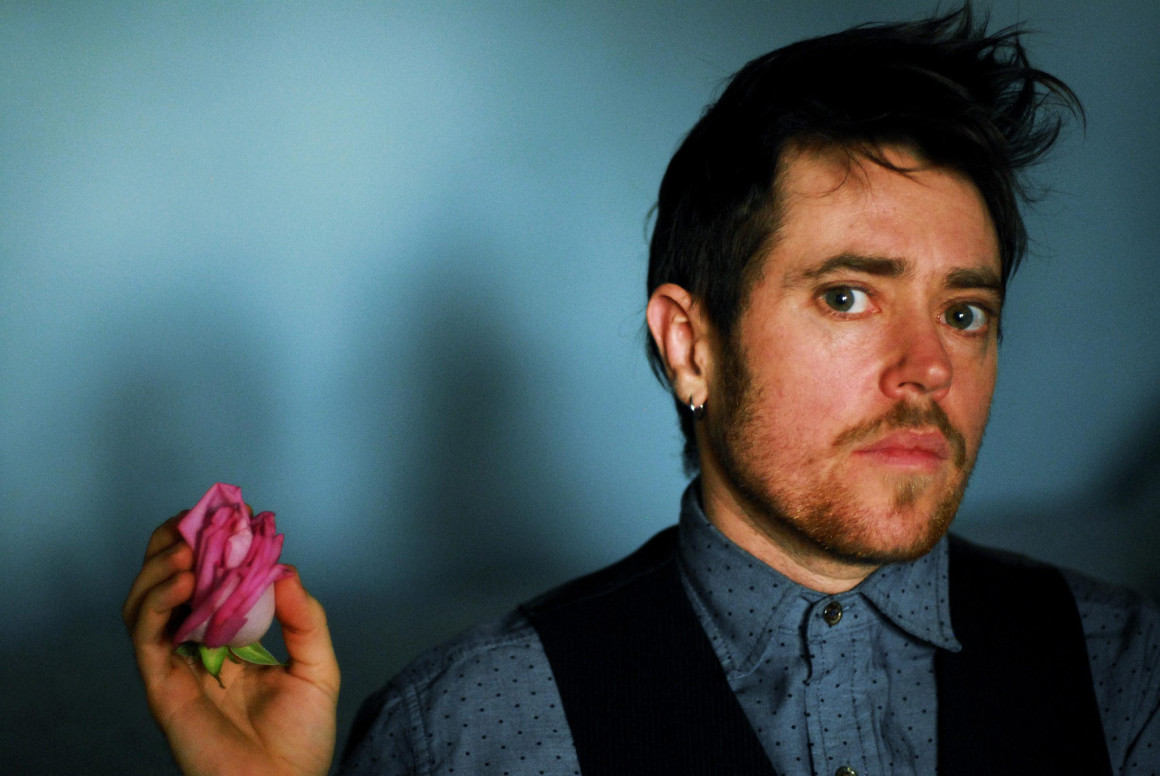
Trans performance artist Sunny Drake destigmatizes addiction through art
By Liam Harrison, September 18 2014 —
Like the varied lifestyles and attributes of the LGBTQA community, Sunny Drake’s pieces are jumbled, distinct and fantastically diverse. He creates imaginative worlds where the gritty details of life, often taken from his own experiences as a trans man, are presented in a lively way. Drake’s latest performance, X, takes a light-hearted view of addiction, exploring it through characters brought to life via puppetry and stop-motion animation. We asked Sunny about his experiences and how they led him to create his surrealist performances.
Gauntlet: What experiences led you to create X?
Sunny Drake: I’m somebody that struggles with alcohol. Alcohol is, what I considered, a useful coping tool. However, at some point the negatives began to outweigh the positives. My writing came very much out of personal experience. The show stemmed from my being ashamed of my drinking problem. For an entire year I collected every single item of alcohol I drank, even on tour. After a while, I realized that there’s probably a lot of other people who feel this shame. I did over 40 interviews with the LGBTQA community about addiction in their lives. Video games, pot, sex — it all came out.
X and its theme of addiction are mostly focused on your experiences, reflected through different characters. Was this to allow more people to identify with the piece?
Absolutely. The characters are definitely fiction, but they all have threads of my experiences running through them. However, lots of people are struggling with these problems and the last thing they want to see is a heavy piece of theatre. I wanted to use these adorable little puppets that you can totally feel for to make light of these topics.
What do you think people take away from X?
My work is multi-layered. I don’t want people to leave feeling they have the answer. Life is really complex, so I aim for people to leave with an array of different questions. I don’t like to create didactic or preachy work, but my aims are very political. I want to destigmatise drinking and other addictions. I think everyone experiences addiction at some point. The most important way for people to get over these things is social support. The fact that people are ashamed shows that we’re not accessing the support that we need. I want to raise the profile of these challenges.
Some studies show as many as 30 per cent of the LGBTQA community has had a problem with drugs or alcohol. Help for queer individuals has improved, but do you believe it could be improved further?
Definitely. Statistical and anecdotal evidence suggests that queer and trans communities experience a lot more substance and alcohol abuse than their heterosexual counterparts. One thing that needs to happen is greater recognition around LGBTQA addiction . . . Within queer and trans communities, we need to talk to each other and provide support for each other, sitting and talking or telling trans stories on stage. I was in my early twenties before I met another trans person. There was a complete lack of trans experience reflected in the world around me. Meeting others like them, particularly successful people, can give people a sense of what they can be . . . What helped me were different stories, what helped me was an access to communities. If I had found these earlier, maybe I wouldn’t have turned to alcohol.
